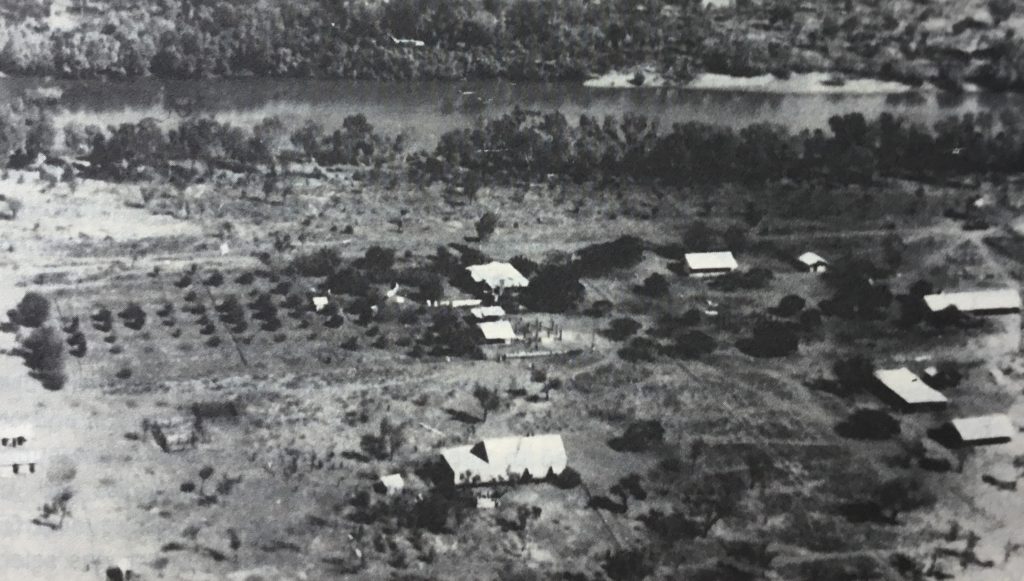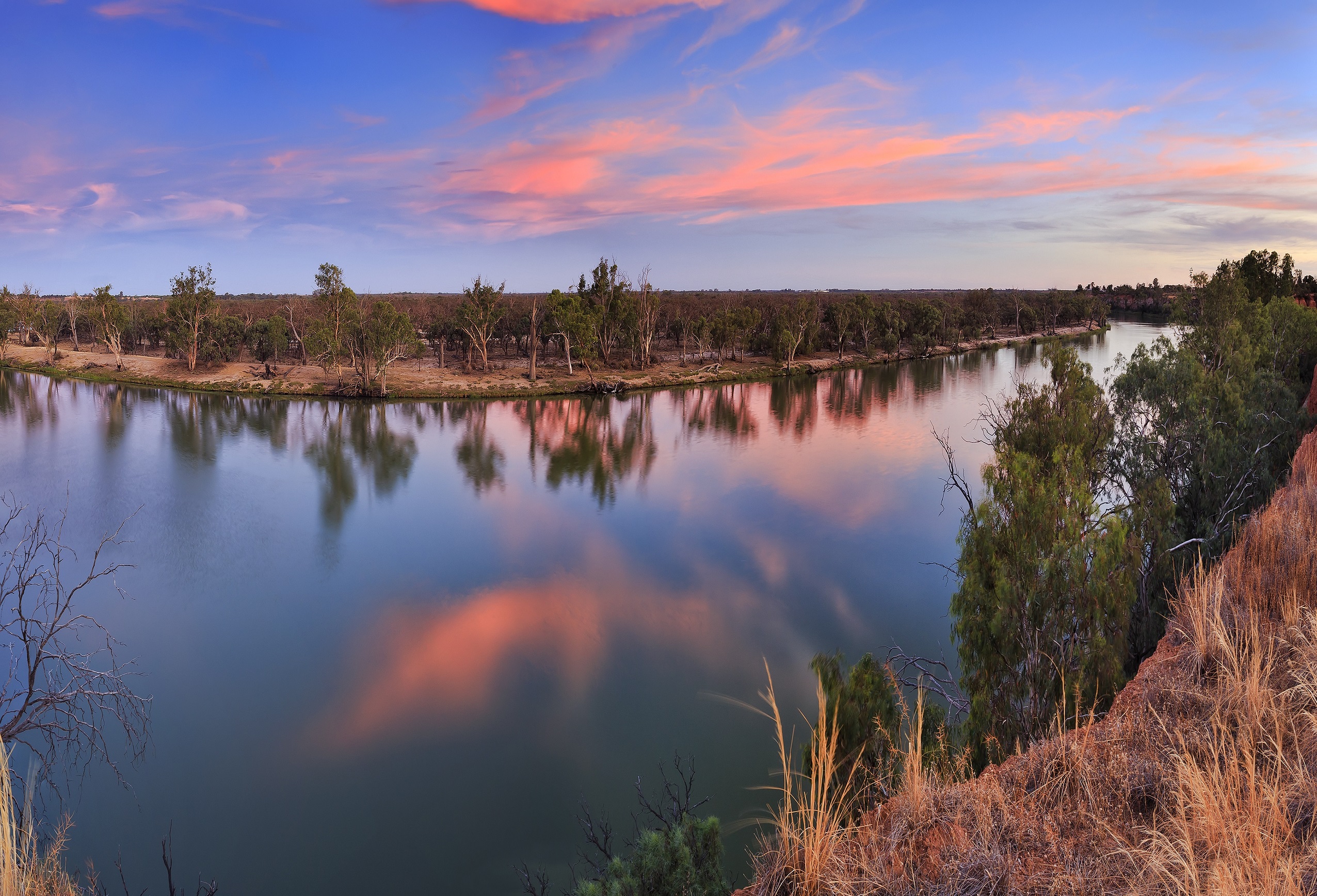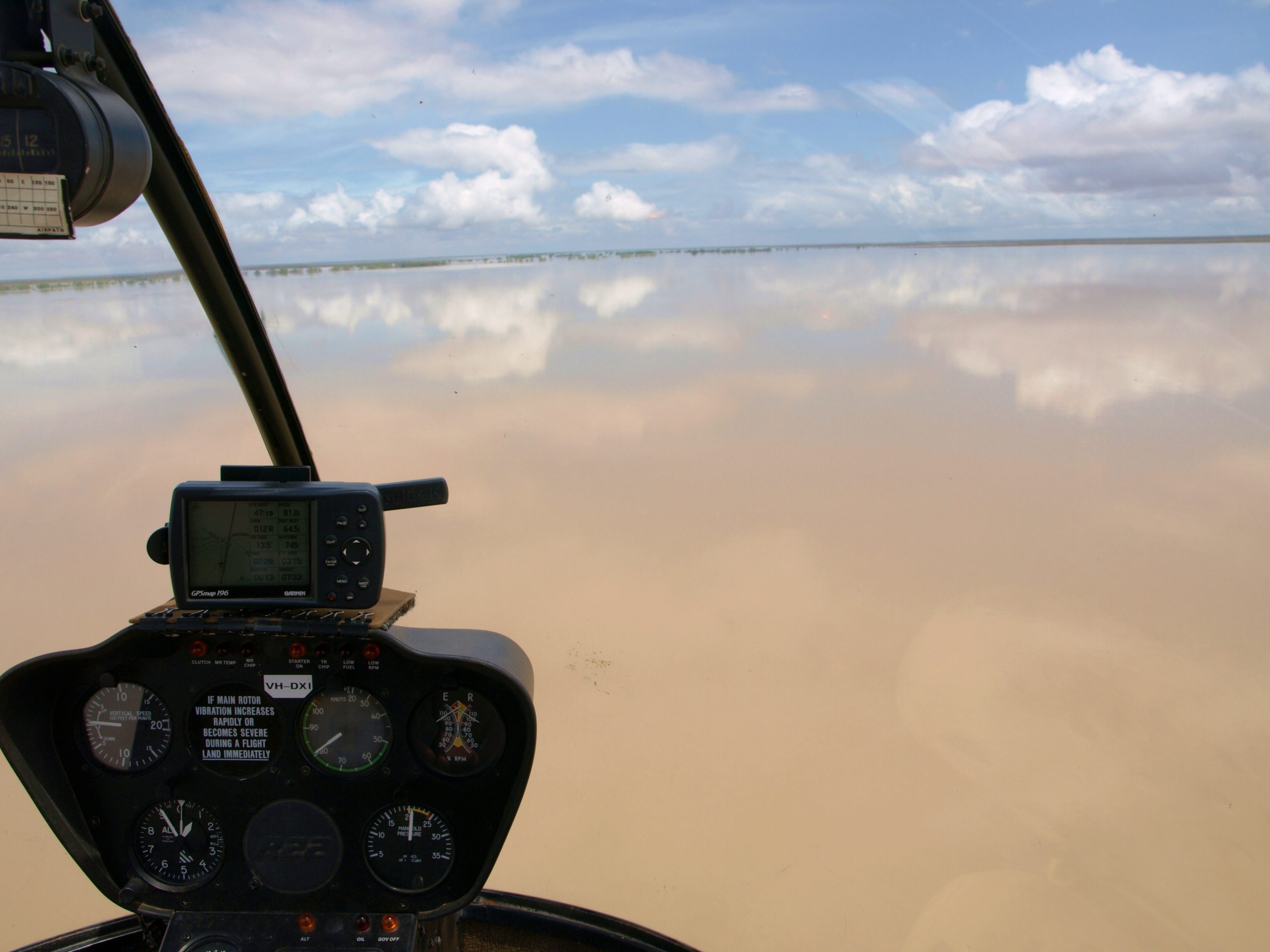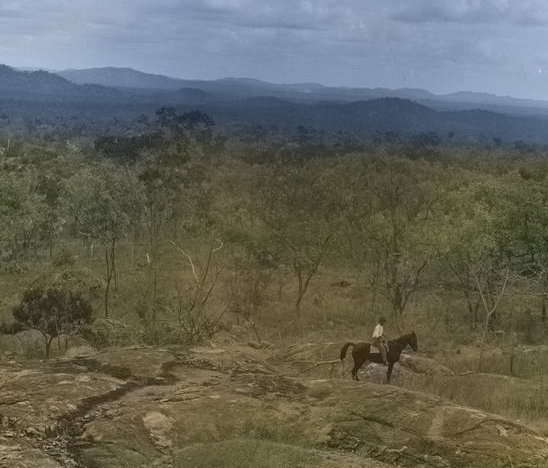
These pages dim with my tears as I attempt to record what happened next, as if the death of Joe was not enough for Kitty to endure.
Less than two years after the death of Joe, she rode into Turn-off Lagoon for supplies. A man called Tom Perry, manager of Creswell Downs Station, passing through on his way back to the Territory, took a fancy to her. Fresh from an all-day drinking session at Anderson’s shanty he blocked her way as she tried to walk into the store.
‘Well hello there,’ he said. ‘How about you come on home with me, an’ warm me swag? I got plenny tucker. Plenny tabacker.’
‘No,’ said Kitty, backing away, then turning to run, heading for her own horse. Perry mounted up and rode to block her off. With that avenue of escape closed to her, Kitty ran for the scrub around the waterhole.
Chasing her down on horseback, Perry struck her to the ground with a stirrup iron. Later, he cuffed her to his saddle Ds, forcing her to walk and run alongside as he took her up the wild Nicholson and across the border into the Territory.
Henry Flick was furious when he heard, and swore that he would get Kitty back. Now Henry had abducted many women himself over the years. Each had, for a time, shared his bed in preference to Joe’s mother. It was partly a sense of pride and property that made him go after Kitty, and partly his genuine feelings for her.
Since Joe’s death, Henry was no longer working. He was in a poor financial state. He outfitted his rescue mission by stealing horses, tack and rations from Frank Hann at Lawn Hill. Thus prepared, he set off in pursuit, in the heat of the build-up season.
The Hedley Track was notorious for taking lives when things went wrong. Henry Flick, son of a vine dresser and father of an outlaw, died of dehydration and heat exhaustion near Cresswell Creek, Northern Territory. The police later found his body twisted and wracked from the pain and distress of his last hours. His rifle was still gripped in his hands in testament to what he might have done to Tom Perry if he had reached him alive.
As for Kitty herself, she remained enslaved by Tom Perry for several years. His full name was Thomas Augustus Perry, a nephew of the great mariner John Lort Stokes. His appetite for black women was legendary, and there were several attempts on his life by angry husbands. He was eventually shot and killed at the Bowgan outstation, by an unknown assassin who fired into his hut from the doorway.
I sometimes fancied that it was Kitty herself who did the deed. May God forgive me, but I hope that she did. I can almost picture the deep brown pools of her eyes as she pulled the trigger and sent Perry slumping to the floor in a puddle of his own rapacious blood.
But then, as happens with all of us, Kitty began to age. Men no longer wanted her. This was a relief to Kitty. For thirty years she drifted, sometimes to the blacks’ camp at Lawn Hill where she could be close to her son’s grave. Then to Burketown, and finally the mission at Old Doomadgee, where our talks began. She stayed only a little longer than I, however. Not a year after I left, a cyclone destroyed the mission, and the facility was removed to the Nicholson River, where New Doomadgee remains to this day.
Len Akehurst’s successor, Mel Read, wrote to me a year or two after the move to inform me that Kitty had died. I never forgot her, not even when I fought my battles in North Africa. After the war I had a strong desire to put my notes and jottings together into a readable format but could not summon the strength to do so.
Kitty’s story had touched my heart and opened my eyes. I visited Joe’s grave again several times, and travelled to the gorges south of the Lawn Hill homestead. Goosebumps prickled under my shirt when I stood on those precipices and gazed down steep red cliffs to the mysterious pools below. This was the wilderness Joe was heading for, the place that might have healed him.
I spent a week in New Doomadgee in 1968, attending the opening of a hospital. Watching the faces of the young men and old women, I had a flash of insight. I understood why Kitty’s words had to be recorded, and on my return to Sydney I took up my pen to do so.
I had, over the years, travelled much of this country for my work as a linguist, from Wave Hill to Gove, Wilcannia to Palm Island. It dawned on me that there is, and has been, not just one Joe Flick, but thousands. And thousands of mothers like Kitty too.
They are still out there now.
©2019 Greg Barron
This was the final instalment of Outlaw: The Story of Joe Flick. It will be out in book form soon.


